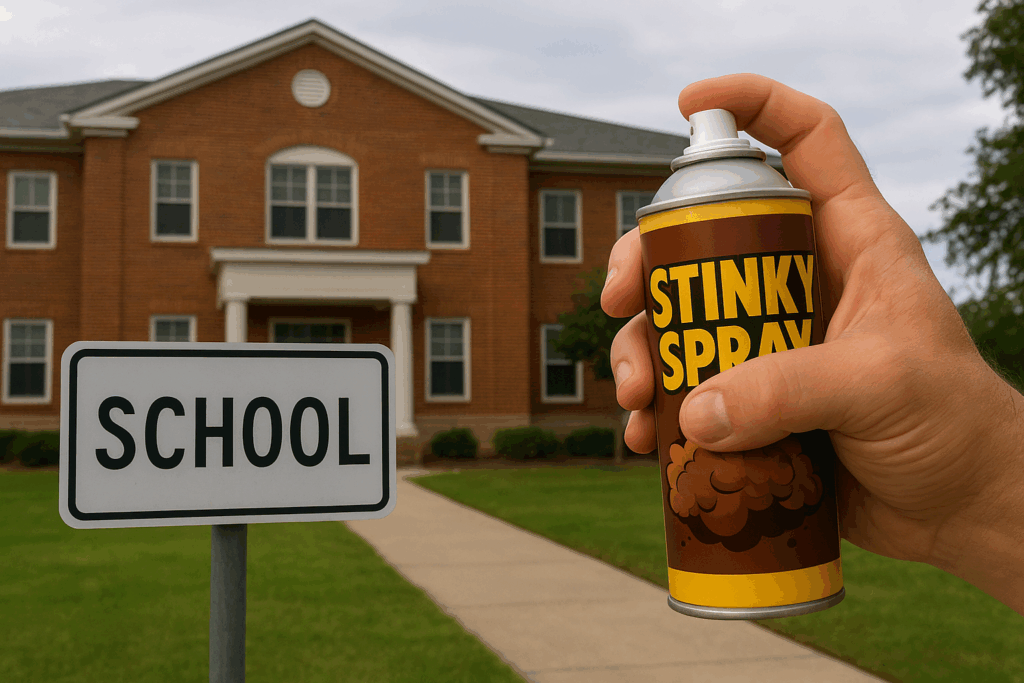A mysterious odor in a high school escalated into a health and legal emergency after investigators say a teaching assistant allegedly deployed a “poop spray,” causing illness, school disruptions, and over $55,000 in damages. The incident has raised urgent questions about how schools handle safety crises and protect community trust.
Between Aug. 25 and Sept. 19, authorities say Alexander Paul Robertson Lewis, 32, a teaching assistant at West Florence High School, repeatedly used a spray bought online to mimic fecal odor. The Florence County Sheriff’s Office reports the smell disrupted school and caused students to seek medical help for respiratory issues.
Several students and staff reported headaches, dizziness, and nausea. One parent provided a vivid impression of the toll, saying, “My son’s asthma has been triggered multiple times because of this, and I had to take him to the doctor three times.”
During investigations, school officials checked gas lines and air quality, assuring parents that “nothing dangerous was found.” As complaints and closures increased, those assurances proved insufficient when evidence showed the odor was intentional.
The district’s expenses were high. More than $55,000 was spent on inspections and repairs, mainly to fix the air conditioning system damaged by the incidents.
Lewis has been booked into the Florence County Detention Center on the charges of disturbing schools and malicious injury to property. Additional charges may be forthcoming.
The case has been heard in court. A judge set Lewis’s total bond at just over $9,000. He faces separate court appearances: one for interfering with schools in the Magistrate’s Court, and another for the property damage case in the General Sessions.
This case highlights a deeper issue: school systems must respond quickly and thoroughly when health threats arise. Ignoring or delaying investigation when many report serious symptoms puts both safety and trust at risk.
The case underscores the importance of transparency. Parents were told “nothing dangerous” was found, but it later became clear that the smell was intentionally caused. Such gaps between messaging and reality erode trust, particularly in matters of health.
The incident highlights the importance of schools having clear policies to prevent access to potentially harmful substances and rapid response frameworks for health-related incidents. Proactive oversight and transparent discipline are critical to maintaining safe learning environments.
As the school community recovers, an essential question remains: What enduring changes will ensure schools are safe, healthy, and prepared to prevent disruptive incidents like this in the future?


